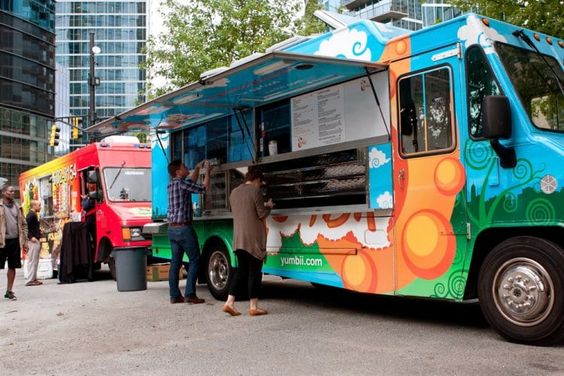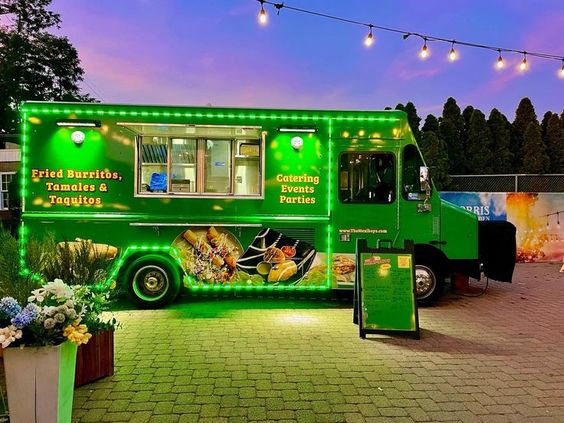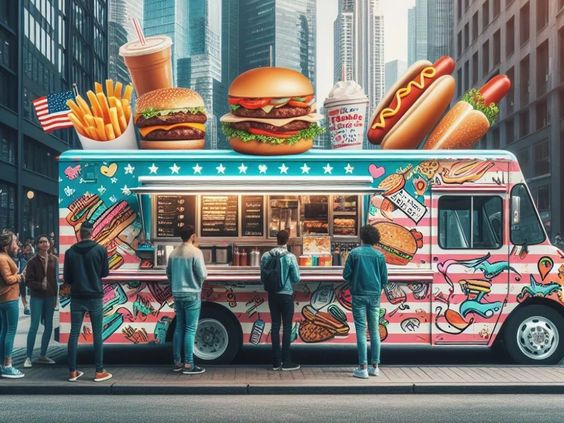How to Start a Food Truck Business
Starting a food truck business is more than just serving delicious meals on wheels—it’s about turning your passion for food into a thriving entrepreneurial venture. Whether you’re a seasoned chef eager to share your culinary creations or an aspiring entrepreneur looking for a mobile business opportunity, launching a food truck requires careful planning and execution. In this comprehensive guide, we’ll walk you through each essential step to help you kickstart your journey towards food truck success.
Food Truck Business
What is a food truck?
A food truck is a mobile kitchen that allows you to sell and serve food in various locations, providing flexibility and the ability to reach a wide range of customers.
Why start a food truck business?
- Flexibility: You can choose your hours and locations, adapting to different events and customer demands.
- Lower startup costs: Compared to a traditional restaurant, starting a food truck can be more affordable.
- Direct customer interaction: Build a loyal customer base through face-to-face interactions and personalized service.
Success stories and inspirations from famous food trucks
Many iconic food trucks have started small and grown into highly successful businesses, such as Kogi BBQ in Los Angeles and The Halal Guys in New York City, inspiring countless entrepreneurs with their innovative approaches and delicious offerings. Also, read about How to Sell Your Soul to the Music Industry
Market Research and Concept Development
Identifying your target market
Define who your ideal customers are based on demographics, preferences, and locations where they gather.
Researching local food truck regulations and permits
Understand the legal requirements and regulations for operating a food truck in your area, including health permits, business licenses, and parking regulations.
Developing your unique selling proposition (USP)
Differentiate your food truck by offering a unique menu, a special cooking technique, or a memorable customer experience that sets you apart from competitors.
Creating a Business Plan
Importance of a business plan
A well-crafted business plan serves as a roadmap for your food truck venture, outlining your goals, strategies, and financial projections.
Key components: concept description, market analysis, financial projections
Detail your food concept, analyze market trends and competition, and project your startup costs, expenses, and revenue forecasts.
Writing a food truck business plan step-by-step
Follow a structured approach to outline your business goals, marketing strategies, and operational plans to attract investors or secure financing.
For more information thesparkplug.ca

Financing Your Food Truck
Estimating startup costs
Calculate expenses such as purchasing or leasing a truck, acquiring kitchen equipment, obtaining permits, and initial inventory.
Exploring funding options
Consider various financing sources, including personal savings, loans from banks or Small Business Administration (SBA), investment from friends or family, or crowdfunding platforms.
Choosing the Right Food Truck
Types of food trucks
Decide between new or used vehicles, custom-built or pre-owned trucks based on your budget and specific operational needs.
Factors to consider: size, kitchen layout, mobility
Choose a truck size that accommodates your kitchen layout and storage requirements while ensuring mobility and compliance with local regulations.
Equipping Your Food Truck
Essential equipment
Equip your food truck with cooking appliances, refrigeration units, storage containers, and safety equipment to meet health and safety standards.
Ensuring compliance with health and safety regulations
Adhere to local health department guidelines regarding food handling, sanitation practices, and regular inspections to maintain food safety standards.
Menu Development and Pricing
Crafting a menu that highlights your specialties
Design a menu that showcases your culinary expertise and appeals to your target audience’s tastes and preferences.
Pricing strategies
Set competitive prices based on ingredient costs, market trends, and perceived value to attract customers while ensuring profitability.
Securing Permits and Licenses
Understanding local health department requirements
Familiarize yourself with food safety regulations, sanitation standards, and zoning laws applicable to food truck operations in your area.
Obtaining necessary permits and licenses
Apply for business licenses, health permits, and parking permits required to legally operate your food truck in designated locations.
Finding a Prime Location
Importance of location in food truck success
Select high-traffic areas, popular events, or strategic locations where your target customers are likely to gather.
Choosing high-traffic areas and events
Participate in food truck rallies, festivals, farmers’ markets, or corporate events to maximize visibility and customer reach.
Negotiating with property owners and event organizers
Establish partnerships with venue owners or event organizers to secure prime locations and ensure compliance with regulations.
Marketing and Branding Your Food Truck
Developing a brand identity
Create a memorable brand name, logo, and design that reflects your food truck’s concept and appeals to your target audience.
Creating an online presence
Build a website and leverage social media platforms to promote your menu offerings, engage with customers, and announce your location and schedule.
Effective marketing strategies
Collaborate with local businesses, offer promotions, and participate in community events to increase brand awareness and attract loyal customers.

Hiring and Training Staff
Roles needed
Recruit skilled chefs, servers, and cashier positions to deliver efficient service and maintain high food quality standards.
Hiring tips and interview process
Conduct interviews to assess candidates’ skills, experience, and enthusiasm for the food truck industry.
Training staff for efficiency and customer service
Provide comprehensive training on food preparation, customer interaction, and operational procedures to ensure smooth daily operations and exceptional customer experiences.
Operations and Management
Daily operations checklist
Create a routine for food preparation, service execution, and cleanup to maintain efficiency and consistency.
Inventory management and supply chain considerations
Monitor ingredient inventory levels, order supplies from reliable vendors, and streamline logistics to minimize waste and optimize cost management.
Implementing systems for efficiency
Utilize point-of-sale (POS) systems for transactions, scheduling tools for staff management, and operational procedures to streamline workflow and enhance productivity.
Handling Challenges and Adapting
Dealing with seasonality and weather challenges
Prepare contingency plans for adverse weather conditions and adjust your menu offerings to reflect seasonal ingredients and customer preferences.
Customer feedback and continuous improvement
Encourage customer feedback, address concerns promptly, and implement suggestions to enhance food quality and service delivery.
Adapting to local food trends and preferences
Stay updated on culinary trends, dietary preferences, and cultural influences to innovate your menu offerings and stay competitive in the food truck market.
Financial Management and Sustainability
Tracking expenses and revenues
Maintain accurate financial records, track expenses against budget forecasts, and analyze sales performance to make informed business decisions.
Budgeting for maintenance and upgrades
Allocate funds for routine maintenance, equipment upgrades, and marketing initiatives to sustain and grow your food truck business.
Sustainable practices in food sourcing and operations
Adopt eco-friendly practices, source locally grown ingredients, and minimize waste to reduce environmental impact and resonate with eco-conscious customers.
Scaling Your Food Truck Business
Growing your fleet or expanding to permanent locations
Evaluate opportunities to expand your fleet, collaborate with other food truck operators, or establish a brick-and-mortar restaurant based on market demand and business growth.
Franchising opportunities
Explore franchising as a growth strategy to replicate your food truck concept and expand your brand presence in new markets.
Long-term planning and goal setting
Set strategic goals, review performance metrics, and adapt your business strategy to achieve sustainable growth and long-term success in the competitive food service industry.
Conclusion
Starting a food truck business requires dedication, creativity, and strategic planning to overcome challenges and capitalize on opportunities. By following the steps outlined in this guide, you’ll be equipped with the knowledge and resources to launch your own successful food truck venture. Remember, beyond serving great food, it’s about creating memorable experiences for your customers and building a strong brand presence in your community. Embrace the journey, stay adaptable, and enjoy the rewards of being a thriving food truck entrepreneur. Happy trucking!


